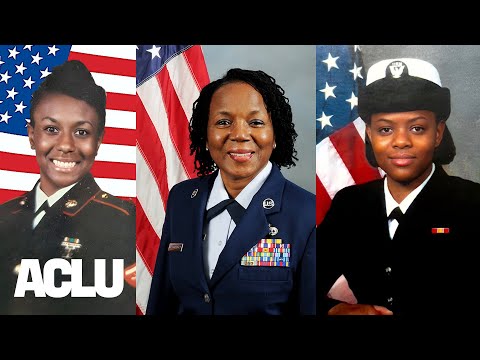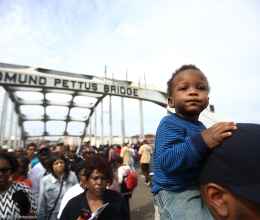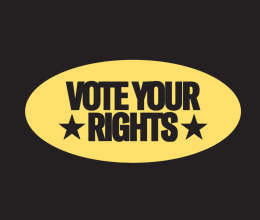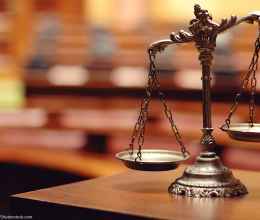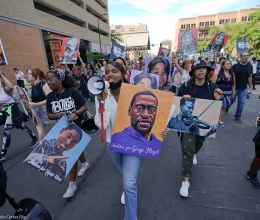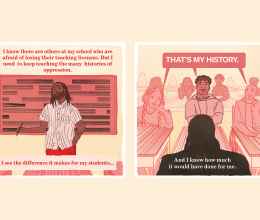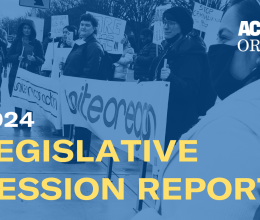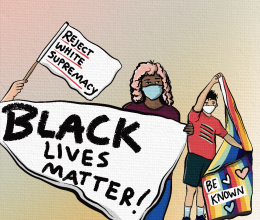
Last year, the Supreme Court overturned its prior holdings on affirmative action, effectively ending race-conscious admissions practices in most colleges and universities and, consequently, restricting the ability of schools to address systemic racial inequalities that persist in higher education. But the court’s decision was left with one exception: military service academies. Now, the same group that brought to the Supreme Court the case that overturned affirmative action, Students for Fair Admissions (SFFA), is suing the U.S. Naval Academy and West Point, alleging in two separate lawsuits that the military academies’ use of race in their admissions processes is unconstitutional.
Affirmative action at service academies is essential for confronting our military’s discriminatory history, which continues to impact service members of color. The ACLU, the ACLU of Maryland, and NYCLU, along with our partners NAACP Legal Defense Fund and the National Association of Black Military Women, filed two amicus briefs in New York and Maryland in support of affirmative action, highlighting the experiences of people of color, specifically the unique experience of Black women in the military.
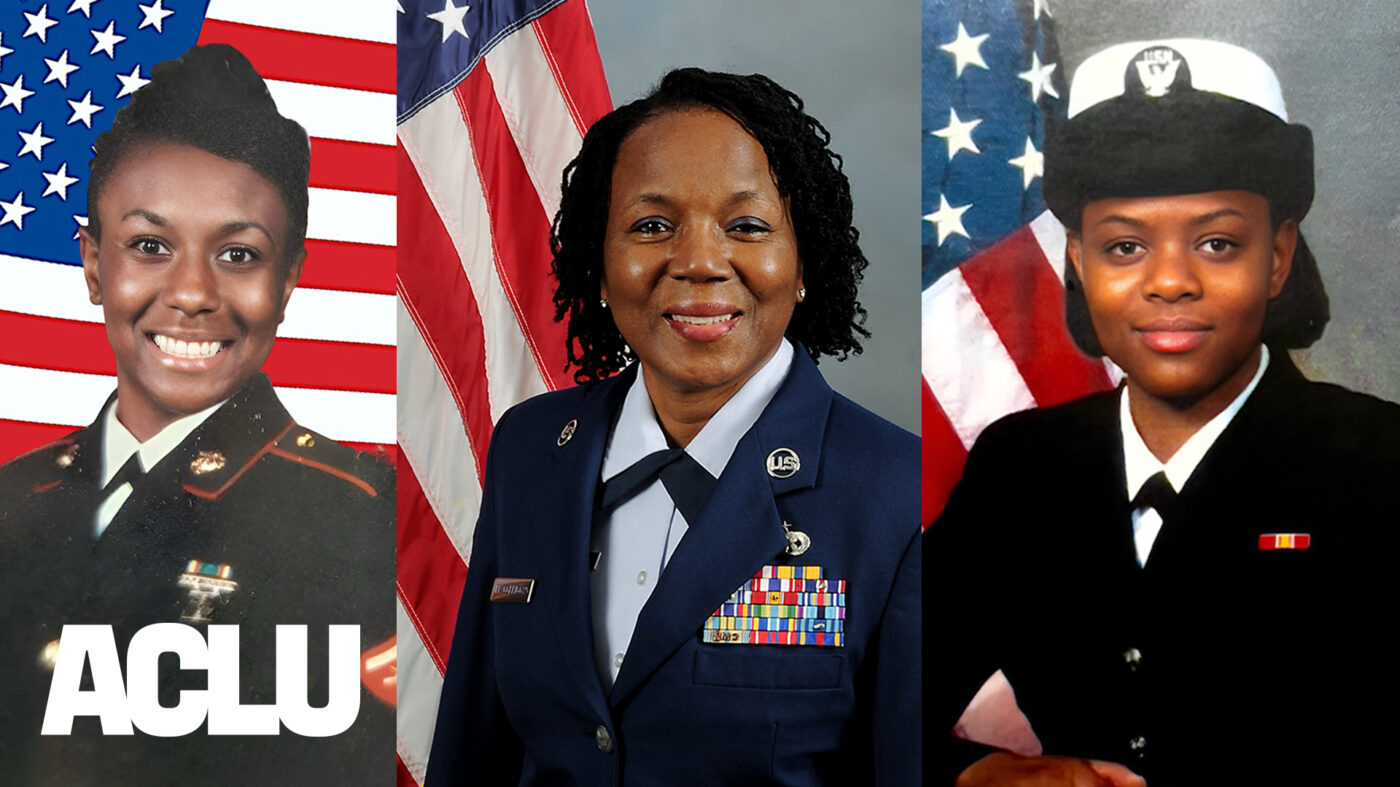
Navy Veteran Sheena Todd - 2010 - 2015
We recently spoke with three veterans who are members of the National Association of Black Military Women. They shared insight into their personal experiences and challenges within the military — from facing unachievable uniform requirements to highlighting the importance of representation. Our conversation has been edited for length and clarity.
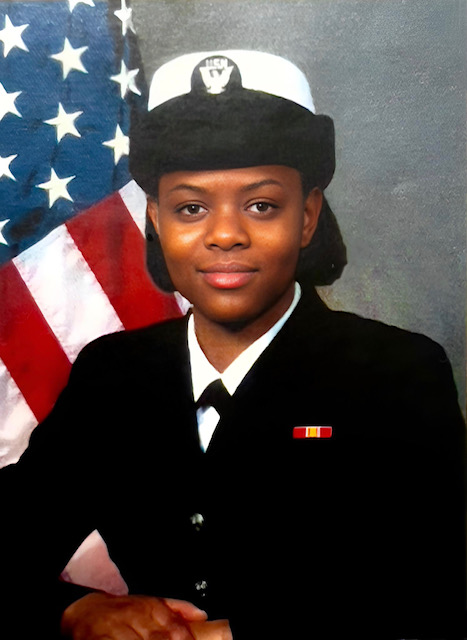
ACLU: Could you tell us about your time in the military and why you decided to join?
Veteran Todd: I was working a few jobs, going to school, and times were tough. This was a way to get out of Detroit and also do something really amazing and scary. It was very important for me to take some time to find myself, grow up a little bit, explore the world, and see what the American dream was about. I’ve always been in jobs that were geared towards service. For me, it was just important to learn to take care of myself and then taking care of others just came naturally.
ACLU: How important is it to have military leadership that represents the diversity of service members?

Veteran Todd: Having a role model, mentorship, and someone who is culturally competent of what African Americans go through, while also allowing others to get some exposure to that type of leadership, is important in addressing discrimination. It definitely affects morale and the cohesion of the group to walk into a room and look around, and no one looks like you at your job, at a hearing, or at a base. It’s also super important when you think about retention and recruitment. If I am not comfortable or I’m not in a place where I feel like I’m in alignment with who I’m surrounded by, it’s really tough. You don’t feel accepted, welcomed, or valued. The other part of this is seeing what’s possible, and being able to learn from each other and what their experiences were. Seeing those positive examples and building credibility and trust with people that are not like you – that exposure opens up your mind.
ACLU: The military imposes certain uniform requirements that can disproportionately impact people of color. Did the uniform requirements affect your time in the military?
Veteran Todd: That was a big deal for me in the military. When it came to uniforms, the regulations were not put in place for us. It was put in place for people with hair that could conform to those regulations. Our hair doesn’t do that. We have to do a little more extra. I was the yeoman that kept instructions in my pocket because they were up for interpretation. I used to get stopped all the time about my hair. There was this one time where I was actually put at attention by a superior. He said I was distracting the sailors and needed to do something about myself. I didn’t have any makeup on, my hair was natural, and I had on overalls and big boots, so I didn’t know what he wanted me to change. I looked around at every other Black girl on that ship; their hair was shaved off. Then I looked at some of our counterparts who had flipped up hair and all this extra stuff. Were they getting pulled to the side? Absolutely not. I’m really glad that they began to change some of those regulations.
Retired Air Force Chief Master Sergeant Sebrena L. Flagg-Briggs - 1986 - 2021
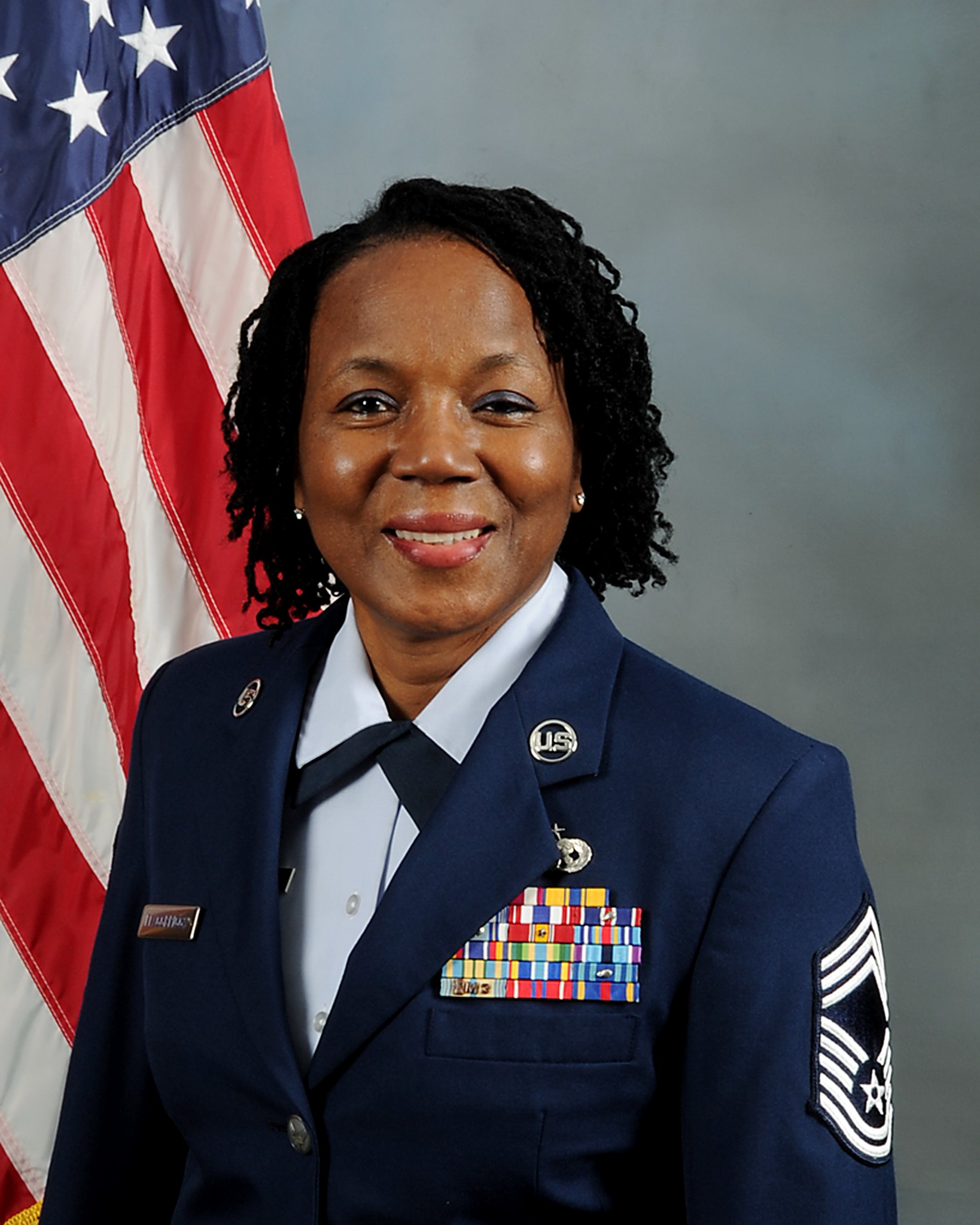
ACLU: Could you tell us about your time in the military and why you decided to join?
Retired Chief Master Sgt. Flagg-Briggs: It was rewarding. It was awesome and it was tough. I joined the military because I wanted to do more for my community. I felt the need to serve others and in my mind, the best way was to serve my country. I would be serving everybody by joining the military.
ACLU: Our amicus highlights that people of color collectively make up as much as 37 percent of the enlisted ranks, but only 14.8 percent of the highest pay grade officers. How do you think this affects the experiences of service members of color?
Retired Chief Master Sgt. Flagg-Briggs: When I first came into the military, there was no one that looked like me in a lot of the rooms that I entered. When you don’t see people in the room that represent you, you don’t feel heard. They don’t understand where we’re coming from or how it makes us feel to not see someone that looks like us in higher rank positions. How can they decide uniform policies like how my hair should be, or how the makeup fits my face, or what color is my natural hair color? Those things came up a lot in the military. It affects morale, and it affects people wanting to join.
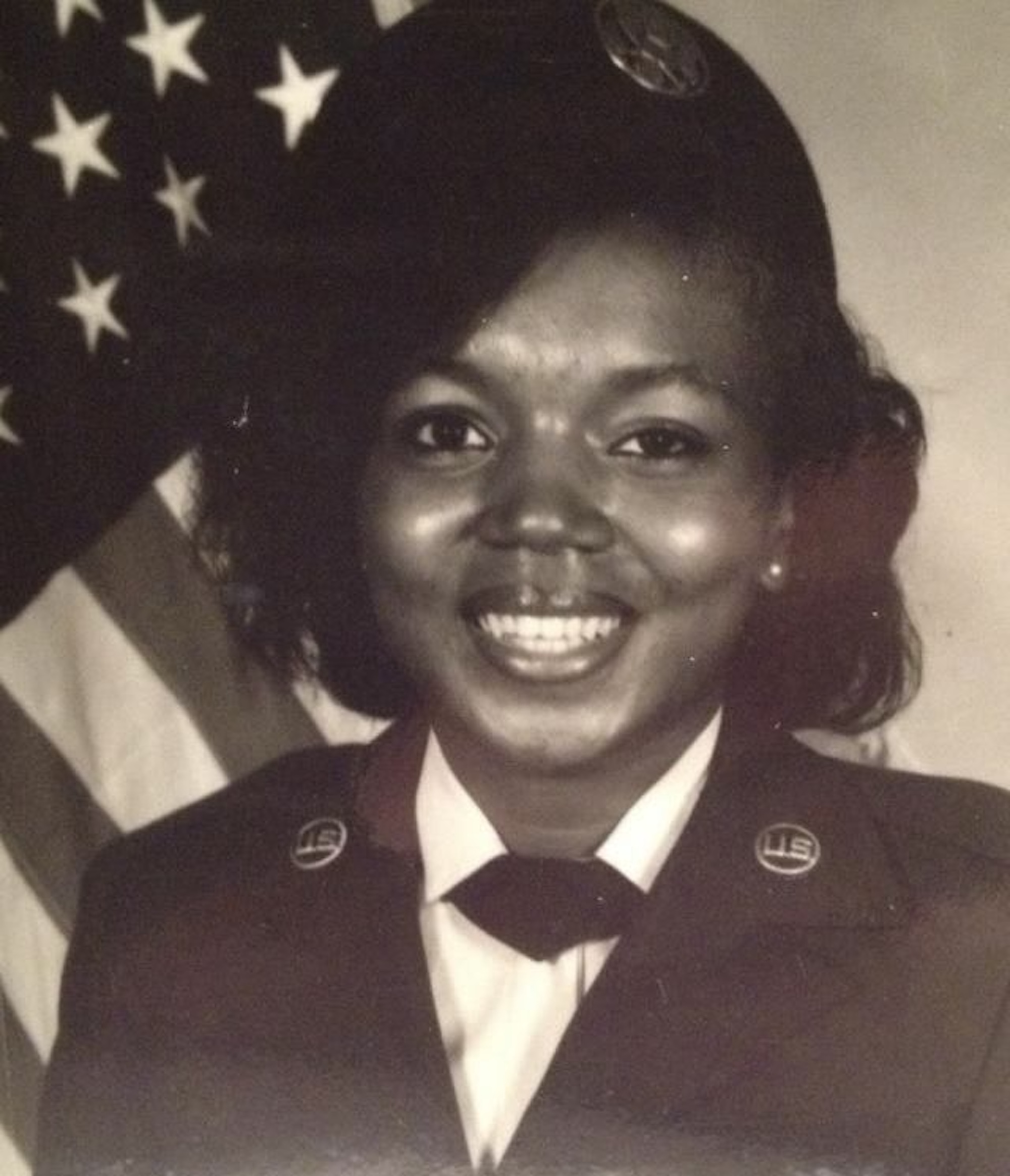
I was very heavy on joining an organization that promoted diversity because I thought it was important that men, women, Black, white, different nationalities be represented. It gave me a greater understanding of their perspective, and I was able to share my perspective. We were able to gather our thoughts, our differences, and come up with a common solution that would make everybody feel included.
ACLU: Disciplinary hearings affecting service members are reviewed by the military’s own judge panel. How important is it to have leadership that represents the diversity of service members and understands different upbringings?
Retired Chief Master Sgt. Flagg-Briggs: That is extremely important. Sometimes when the decisions are made, it perpetuates in your mind that there’s no way they understand who I am or what I represent, because that opinion doesn’t sound like it is for me. There have been examples where there was one type of solution or punishment that was going to be put upon a person and because I was in the room, I helped them understand that it wasn’t as they saw it. The relief that they got from having me in the room was astounding. Many times I was the only woman of color or the only person of color in the room, and I was always opinionated and spoke for folk that were on the line. That was truly important during my 35 years of service. Rising to the rank of Chief, it made me more aware. It helped me help others to understand why it’s important to get in the room, earn more rank, so that we can be better understood, and we could share our experiences and other folks would understand as well.
Marine Corps Veteran Marnisha Mintlow - 1997 - 2001
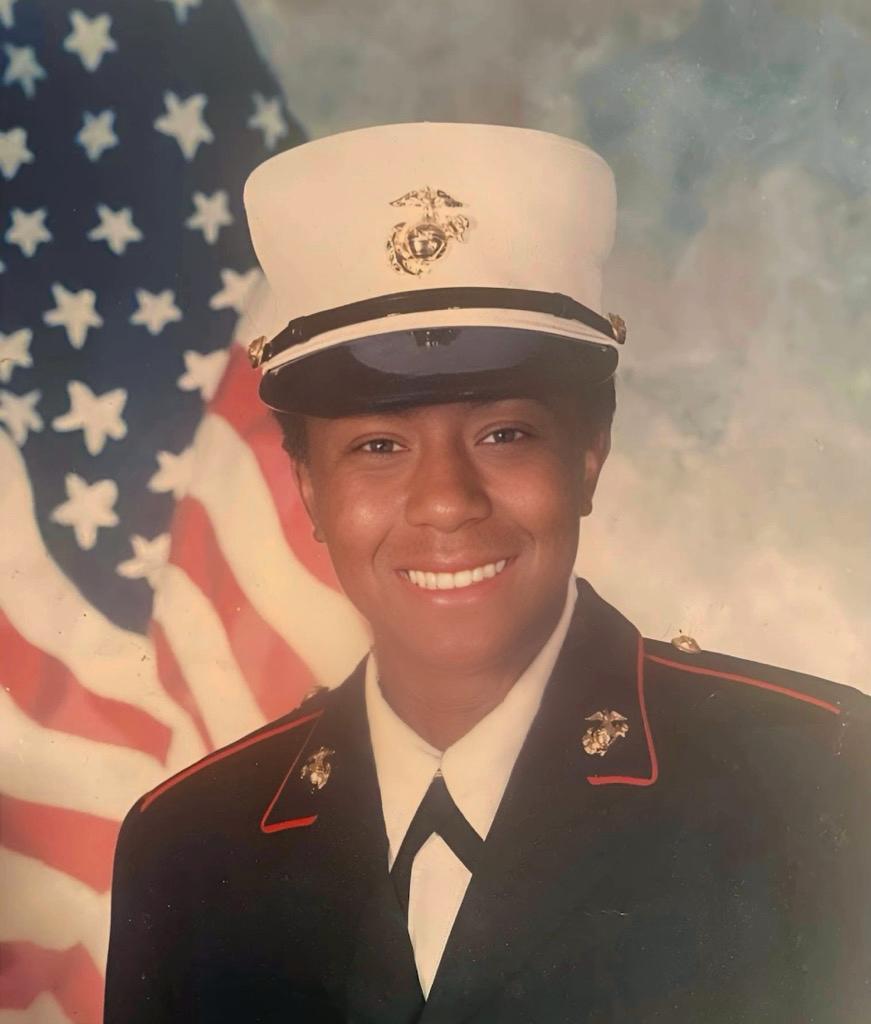
ACLU: Could you tell us about your time in the military and why you decided to join?
Veteran Mintlow: When I joined, it was about me getting money for school. But as you’re gaining education and knowledge of what this branch has gone through, the wars it has fought and won for our country, and you built a relationship with the branch, you learn the importance. So then it becomes, I served my country, I did my part, I put my life on the line.
ACLU: The military imposes certain uniform requirements that can disproportionately impact people of color. Did the uniform requirements affect your time in the military?
Veteran Mintlow: It wasn’t necessarily uniforms that were my issue. It was the weight requirement. Once you hit the maximum weight requirement, they will do what’s called a body fat measurement. When they do that for women, they measure our necks, our waists, and hips. I still believe that is not a fair measurement for women of color. In my culture and as a Black woman, the widest part of my body is my hips, and there is nothing I can do about it. There are some things that we cannot fix, and to have that held against me, it negatively impacted my military career. I was at a point in my career where I was supposed to get a meritorious promotion, but did not get it because I was considered overweight by their metrics.
ACLU: Why is it important to have representation in the military?
Veteran Mintlow: It’s important to have a diverse population amongst enlisted members and officers so that people who are not in the military have an opportunity to see themselves in the military. When I wasn’t in the military, every person I saw in the Marine Corps was a man. So while I was at my recruiter’s office, they had a poster on the wall of a Black woman in a blue dress, and I said, I need to see her in real life. When I went to the Military Entrance Processing Station, which is where you do your swearing in and you sign all your paperwork, I met a Black woman. She was my visual. I knew I could do this because she looked like me and she did it. It’s very important to have those role models and those mentors in real life. When we see people who are like us, doing these things, it gives us the initiative, the drive, and the inspiration to know that we can do those things, too.
